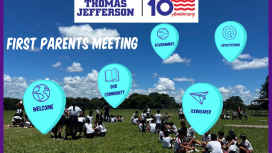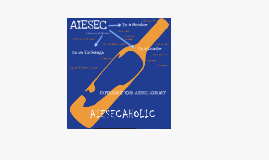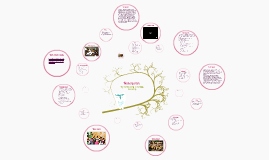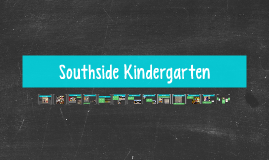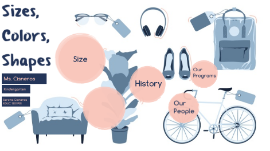Kindergarten presentation
Transcript: Exploring the World of Kindergarten A Journey into Early Childhood Education Introduction to Kindergarten Engaging Learning Activities in Kindergarten What is Kindergarten? Why Early Childhood Education? Play-Based Learning Storytelling and Literacy Arts and Crafts Kindergarten is the first formal educational experience for children, typically starting at age five. It serves as a bridge between home and elementary school, fostering social, emotional, and cognitive skills essential for future success. Early childhood education is vital as it influences brain development, improves social skills, and enhances future academic performance. Studies show that quality preschool programs can lead to better outcomes in education and life. Play-based learning is fundamental in kindergarten as it encourages exploration and imagination. Children engage in activities that promote problem-solving and critical thinking whilst fostering creativity and social interaction with peers. Arts and crafts activities promote fine motor skills and creativity. Children express themselves through various mediums, which not only fosters artistic expression but also enhances cognitive and sensory development. Storytelling enhances language acquisition and comprehension skills. Through engaging narratives, children develop vocabulary, listening skills, and an understanding of structure in stories, building a strong literacy foundation. Music and Movement Outdoor Learning Experiences Kindergarten Curriculum Overview Goals of Kindergarten Education Outdoor learning offers children opportunities to explore nature and develop environmental awareness. Activities such as gardening and nature walks encourage curiosity and can enhance understanding of ecological concepts. Music and movement activities support physical development and auditory skills. Through rhythm, dance, and song, children improve coordination and enhance their understanding of patterns and sounds. The kindergarten curriculum typically includes a mix of literacy, numeracy, social studies, and arts, promoting a holistic approach to child development. It focuses on hands-on activities and play-based learning to engage young minds. The primary goals of kindergarten education include fostering independence, building social relationships, and developing basic academic skills. Effective programs aim to create a love for learning that encourages lifelong educational pursuits. Social Development in Kindergarten The Crucial Role of Parental Involvement Building Social Skills Teamwork and Collaboration Role of Parents in Education Effective Communication with Teachers Children develop social skills through structured play, interaction with peers, and guided activities. These experiences allow them to learn sharing, empathy, and effective communication, which are essential for navigating social environments. Teamwork in kindergarten encourages children to work together towards a common goal. Activities such as group projects or cooperative games foster a sense of belonging and teach the importance of collaborative effort. Parents shape their child’s attitudes towards learning and education. Active engagement enhances motivation and helps recognize the importance of education from an early age. Open dialogue between parents and teachers fosters collaboration. Regular updates on progress and challenges empower parents to better support their children's educational journey. Supporting Learning at Home Importance of Friendships Volunteering Opportunities in Kindergarten Conflict Resolution Strategies Volunteering strengthens the connection between home and school. Opportunities like assisting in classrooms or during events allow parents to engage actively in their child's education. Creating a conducive learning environment at home significantly boosts academic success. Simple activities like reading together or educational games enhance skills while nurturing a love for learning. Developing friendships is essential for emotional well-being and social competence. Friendships in kindergarten provide emotional support, enhance self-esteem, and promote cooperative behavior among peers. Teaching conflict resolution strategies equips children with the tools to navigate disagreements peacefully. Methods such as role-playing or guided discussions help them understand different perspectives and find mutually agreeable solutions.






